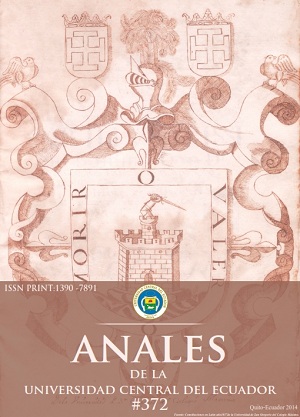Maquiavelo a 500 años de el príncipe
DOI:
https://doi.org/10.29166/anales.v1i372.1286Keywords:
Maquiavelo, Estado, Poder, Renacimiento, Ciencias PolíticaAbstract
The author in this essay recovers central tenets of the Florentine thinker Niccolo Machiavelli’s work in the celebration of the 500th anniversary of the appearance of his famous book The Prince. In the discussion of political science, Machiavelli appears as its founder and principal inspiring and since then outlines its main features, the study of politics is the study of human behavior crossed by the logic of power. The modernity of Machiavelli, the author tells us in his secular stance in the context of religious tensions which were triggered in the context of the Italian Renaissance, that is certainly he is one of its greatest exponents, the policy ceases be the implementation on the ground of supernatural power and becomes building a quintessential human endeavor. As happes with natural science or Telesio experimental Galileo, Machiavelli science experimentation is the best way of organizing human relationships. In its germ, politics is war and confrontation. The Prince should be able to build his power by canceling the other branches; politics and diplomacy are presented as two sides of the same coin, as conflict art of arranging or preparing the best conditions for confrontation and war alternating functionality. That has to do with the presentation of the most appropriate means to achieve, maintain and reproduce political power. A combination of pragmatism and strategic vision that Machiavelli did not find in the leaders of his time, the tragedy of Machiavelli did not consist only in the isolation of logic from the power, in its difficulty to decisively influence the political course of the Florence of his time, its greatest tragedy lay in the indifference with which he was welcomed his tract De principatibus by Lorenzo de Medici, who was dedicated and trusted the task of Italy’s revival indifference contrasted with the acceptance that his work will have in the posterity, a highly controversial acceptance, praise and rejection, but never indifference.


